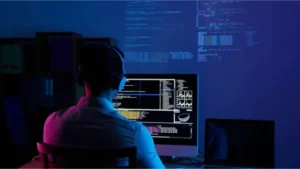Coding is more than just writing lines of syntax; it’s an art, a science, and a craft. While coding tutorials and documentation provide the “how,” there are unspoken rules that can profoundly shape your journey as a developer. These unwritten guidelines, honed by generations of programmers, are applicable to both novices taking their first steps and seasoned sages refining their expertise. Let’s dive into these rules and unravel their significance.

The Importance of Following Unspoken Rules
Why do these unspoken rules matter? For starters, coding is a collaborative effort. Whether you’re working on a solo project, contributing to an open-source repository, or managing a team, adhering to these rules helps you write clean, maintainable, and efficient code. They ensure smoother communication, fewer bugs, and a harmonious development environment.
Unspoken Rules for Novice Developers
1. Start Simple and Build Gradually
Many beginners dive into ambitious projects too quickly, only to face frustration. Begin with foundational projects—a basic calculator, a to-do app, or a simple game. As you build confidence, gradually tackle more complex challenges.
2. Understand the Problem Before Writing Code
Jumping into coding without fully understanding the problem often leads to messy solutions. Take time to analyze the requirements, break them into smaller tasks, and design a clear approach.
3. Comment Your Code, But Not Excessively
Write comments to explain why you’re doing something rather than what you’re doing. For example:
# Check if the user input is a palindrome
if user_input == user_input[::-1]:
print("Palindrome")Avoid redundant comments that restate the obvious:
# This adds two numbers
a = b + c
4. Learn Version Control Early
Version control systems (like Git) are invaluable. Start using Git for all your projects, even if you’re working solo. It’s a skill every developer must master.
5. Debugging is an Essential Skill
Learn to debug effectively by using tools like print statements, debuggers, and error logs. Debugging teaches you to think critically and problem-solve.
6. Don’t Reinvent the Wheel
Before writing custom code, check if a library or module can accomplish your task. For example, use Python’s built-in math module for calculations rather than writing your own functions.
Read More = The Unspoken Rules of Coding
Unspoken Rules for Sage Developers
1. Prioritize Readability Over Cleverness
Experienced developers sometimes write clever one-liners that are difficult to understand. Opt for clarity:
# Clear and readable
def is_even(number):
return number % 2 == 0
# Clever but confusing
def is_even(number): return not number % 22. Refactor, Don’t Rewrite
When maintaining legacy code, resist the temptation to rewrite everything. Instead, refactor incrementally to improve functionality without breaking existing features.
3. Mentor the Novices
Share your knowledge generously. Guiding less experienced developers not only helps them grow but also sharpens your own understanding.
4. Automate Repetitive Tasks
Leverage scripts, tools, and CI/CD pipelines to automate mundane tasks like testing, deployment, and documentation generation. It saves time and reduces human error.
5. Write Tests for Your Code
Test-driven development (TDD) ensures your code works as expected and is less prone to bugs. Write unit tests, integration tests, and end-to-end tests.
6. Respect Other People’s Code
Whether you’re reviewing pull requests or contributing to open-source projects, be constructive and respectful in your feedback. Avoid dismissive remarks.

The Shared Rules: Applicable to All Developers
Some rules transcend experience levels and apply to everyone in the coding community. Here’s what both novices and sages should adhere to:
- Adopt Consistent Coding Styles: Use standardized naming conventions, indentation, and spacing to ensure uniformity across projects.
- Document Your Work: Whether it’s inline comments, README files, or API documentation, clear documentation makes your code accessible to others.
- Stay Updated: Technology evolves rapidly. Continuously update your skills by reading blogs, attending conferences, and exploring new tools.
- Seek Feedback: Code reviews improve the quality of your work and expose you to alternative approaches.
- Embrace Failure: Mistakes are an inevitable part of coding. Treat them as learning opportunities rather than setbacks.
Detailed Table of Specs and Features for Development Best Practices
| Category | Feature | Description | Example |
|---|---|---|---|
| Coding Standards | Indentation | Use 2 or 4 spaces consistently for better readability. | Python: Use 4 spaces; JavaScript: Often 2 spaces |
| Version Control | Git Branching Model | Adopt branching strategies like Git Flow for organized collaboration. | Main, Develop, Feature, and Hotfix branches |
| Testing | Unit Testing | Test individual components for functionality. | Python: Use PyTest; Java: Use JUnit |
| Code Reviews | Pull Request Etiquette | Provide constructive feedback and detailed explanations. | Avoid comments like “This is bad”; instead, explain why and suggest improvements. |
| Error Handling | Logging and Debugging | Log errors and debug effectively to track and fix issues. | Python: Use logging module; JavaScript: Use console.log or advanced tools like Sentry |
| Collaboration | Agile Methodology | Follow agile principles for iterative and collaborative development. | Sprints, daily stand-ups, and retrospective meetings |
| Documentation | API Documentation | Write clear and comprehensive API docs for ease of use. | Use tools like Swagger or Postman |
| Security | Secure Coding Practices | Avoid common vulnerabilities like SQL injection and XSS. | Use parameterized queries and sanitize inputs |
| Optimization | Performance Tuning | Optimize code for speed and efficiency. | Use profiling tools like cProfile (Python) or Lighthouse (Web Development) |
| Automation | CI/CD Pipelines | Automate builds, tests, and deployments for streamlined workflows. | Use Jenkins, GitHub Actions, or GitLab CI/CD |
Bridging the Gap Between Novices and Sages
Despite their differences in experience, novice and seasoned developers can learn a great deal from one another. Beginners bring fresh perspectives and a willingness to explore, while experts contribute wisdom and depth of knowledge. When these two groups collaborate, innovation flourishes.
Practical Steps to Foster Collaboration
- Pair Programming: Pair an experienced developer with a novice to share knowledge and improve code quality.
- Code Reviews: Encourage juniors to participate in code reviews to expose them to best practices.
- Hackathons and Team Projects: Collaborative projects foster teamwork and mutual learning.
- Mentorship Programs: Establish formal mentorships to guide novices and help them grow.
Conclusion
The unspoken rules of coding are the glue that holds the developer community together. They’re not about restricting creativity but fostering a culture of excellence, respect, and collaboration. Whether you’re a novice navigating your first project or a sage refining your craft, these principles will help you write better code, build stronger teams, and create impactful solutions.
In the end, coding is not just about syntax or frameworks; it’s about the mindset. Embrace these rules, share your knowledge, and keep learning. The journey of a developer is never-ending, and that’s what makes it so exciting.
Read More = The Unspoken Rules of Coding





